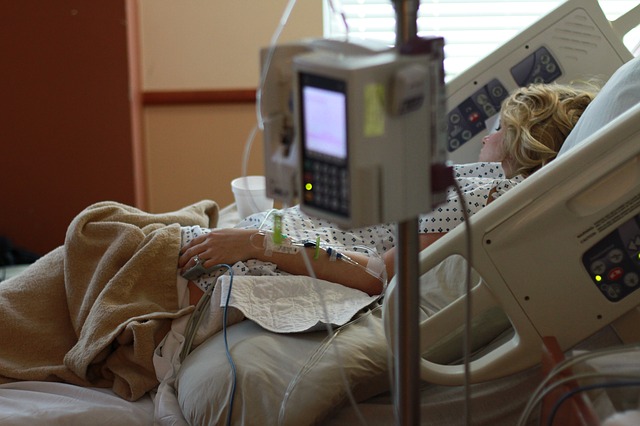Should Postpartum Pain Control Be a Crap Shoot?
/By Lynn Webster, MD, PNN Columnist
Anticipating the birth of my second grandchild should have been a purely joyous time. My daughter was about to become a mother for the second time. The miracle of life would unfold again in our family, as it does for thousands of families, every day, all around the world.
My daughter was scheduled to have a repeat cesarean section (I am sharing this story with her permission). The first operation was uneventful, apart from the fact that it produced my first, adorable grandchild.
However, this time I was concerned that my daughter’s post-op pain might not be adequately treated. Since her first C-section three years ago, the hospital system where she delivers has made a public commitment to reducing the amount of opioids prescribed for acute pain by 40 percent.
I worried that the hospital’s choice to lessen the amount of drugs prescribed, rather than focusing on patients' clinical needs, might mean my daughter's need for pain control would be unmet.
The idea of my daughter enduring inadequately treated pain haunted me, as it would any father, but as a pain specialist, it may have troubled me even more. I have seen the unspeakable suffering that insufficiently managed pain can cause. I also know that inadequately treated acute pain can lead to chronic pain.
The thought that my daughter might be the victim of the hospital’s well-intended attempt to reduce opioid use was highly unsettling to me, but there was little I could do about it. Doctor or not, I could not be sure that my daughter would receive the individualized treatment she deserved after her surgery.
So, several weeks before her scheduled operation, I advised my daughter to talk to her surgeon. Specifically, I asked her to find out how her post-op pain would be treated.
The irony of the situation was not lost on me. This was the first time in my career as a pain specialist and anesthesiologist that I had to worry a family member might suffer from ineffectually managed post-op pain. It was humbling. I felt as impotent and powerless as any other bystander.
I know the hospital system is addressing the number of people who abuse drugs, and their response may well be appropriate in some cases. But my daughter isn’t contributing to the problem. Why should she have to pay the price for the inappropriate behaviors of others?
Pain control was no longer only a professional concern for me. It was now very personal.
My fear was reinforced by a June 3 The Wall Street Journal article by Sumathi Reddy, “The Push for Fewer Opioids for New Mothers.” In it, Reddy describes the national effort to reduce the amount of opioids used postpartum.
Of course, opioids should not be used if there are safer and more effective alternatives. But some hospitals are taking aggressive steps to eliminate the use of any opioids. As a result, the individual needs of a patient may be lost in an effort to tackle a public health problem.
Something seems out of kilter with that line of thinking. It reminds me of the adage of not seeing the forest for the trees.
The American College of Obstetricians and Gynecologists (ACOG) recently published new guidelines for treating postpartum pain. The guideline does not exclude the use of opioids from post-op pain control. In fact, the recommendation for opioid use seems to be logical and consistent with patient-centered care.
Fortunately, my daughter’s OB is an excellent and caring clinician. Her approach is patient-centered, and she provided my daughter -- cautiously -- with the necessary analgesics to help her manage her recovery. My daughter did not like the way the medication made her feel, but without it she would not have been able to care for her newborn.
An ACOG recommendation specifically states that postpartum pain management should involve shared decision-making. My daughter needed to understand the risks and benefits of opioids before deciding whether or not to accept them to treat her pain. This approach worked for her. The mother of my new, healthy, precious grandchild deserved no less.
All mothers across the world deserve the same level of care. I fear, in some cases, they may not be as lucky as my daughter. They may not receive the care they need, and the joy of giving birth may be superseded by the agony of unmanaged acute pain.
Lynn R. Webster, MD, is a vice president of scientific affairs for PRA Health Sciences and consults with the pharmaceutical industry. Lynn is a former president of the American Academy of Pain Medicine, author of the award-winning book “The Painful Truth” and co-producer of the documentary “It Hurts Until You Die.” He lives in Salt Lake City with his wife and now two granddaughters.
You can find him on Twitter: @LynnRWebsterMD.
The information in this column should not be considered as professional medical advice, diagnosis or treatment. It is for informational purposes only and represents the author’s opinions alone. It does not inherently express or reflect the views, opinions and/or positions of Pain News Network.





